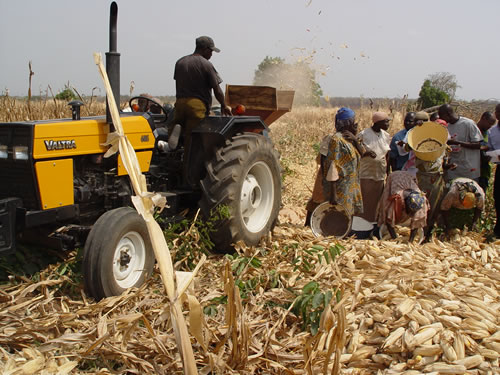The Nigerian Export Promotion Council (NEPC) on Monday urged the Federal Government to generate more Forex under the African Growth Opportunity Act (AGOA).
Mr Babatunde Faleke, Southwest Coordinator, NEPC, told the News Agency of Nigeria (NAN) in Lagos that Forex could be earned through the export of cashew, cassava and spices like ginger.
Faleke said exporters would benefit more because they would be given duty waivers under AGOA.
He said that many exporters had not exported under AGOA platform because they lacked proper information and documentation of the programme.
According to him, there has been an increasing global demand for cassava products like chips, garri, fufu, and spices like ginger, pepper, garlic, dried onions, and cashew nuts.
“We know that Nigerians export these items to the U.S. and other countries, but AGOA is an opportunity to save costs, manage the rigours of export processes.
“In a nutshell, we are losing a lot by not using AGOA, which is duty-free.
“The demands for these products are being met by other countries.
“The AGOA programme has recently been extended by 10 more years in 2015, and a year is gone, so we have only nine years to put our house in order to benefit from AGOA,” he said.
Faleke said that Nigeria was one of the first three largest exporters of cashew in the world with more than a production value of 150,000 tonnes of cashew annually.
He added that Nigeria was also the world’s largest producer of yam and cassava, but had not generated sufficient foreign exchange from it due to poor storage and exporting challenges.
He listed the major challenges to be lack of proper storage facilities, inability to meet international standards, and lack of the necessary certification for the products.
“Non-oil export trade in West African countries for 2014 was estimated at 25.4 billion dollars, and only 14.2 billion dollars export trade was done under AGOA.
“Out of these countries, Ghana, Angola and some others are topping the chart for exporting agricultural and industrial items under AGOA while Nigeria is still lagging behind.
“Certification of products for export purposes has been a major challenge,” he said.
The NEPC chief noted that the major challenge for non-oil exporters, aside funding, had been low capacity to meet demands, and lack of necessary information.
He appealed to the Federal Government to provide more support to farmers and exporters to increase their capacity to meet AGOA demands.
Faleke said that the support could be in form of funds, equipment for industrial clusters, warehousing, packaging equipment, solely for export.

